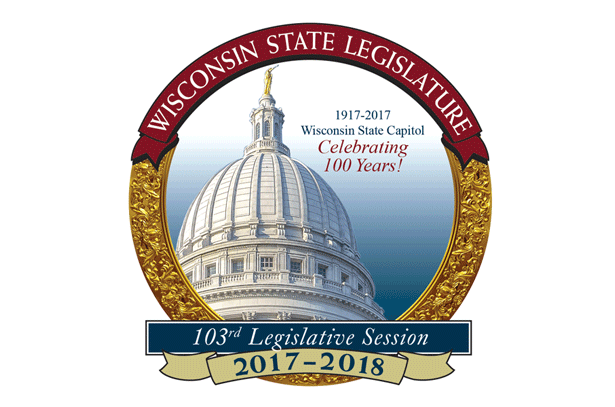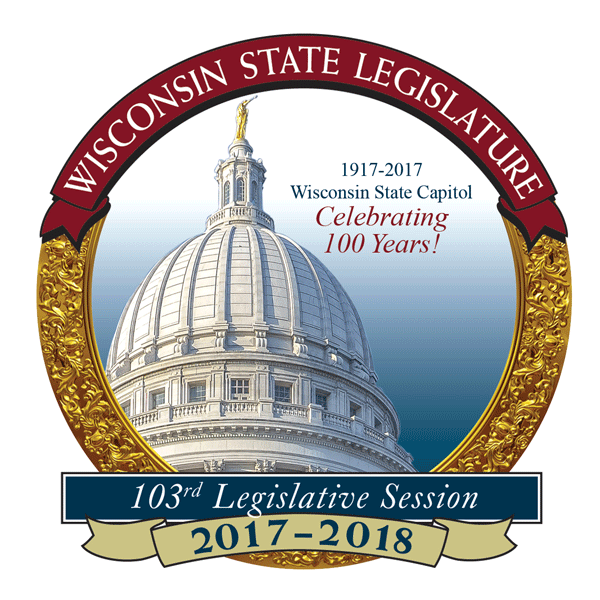
by Ellen Schutt
Wisconsin’s State House passed a bill protecting free speech on college campuses — at least that’s what they want you to think. The bill, currently pending in the Senate committee on Universities and Technical Colleges, lacks concrete language to define what is acceptable regarding a person’s right to protest, therefore creating open interpretation to the person enforcing the rules.
Assembly Bill 299 (“Relating to: free expression within the University of Wisconsin System…”) is a good idea but it unfortunately has language that is unclear as well as policies that are far too broad, which gives the state or institution too much power over the individual.
The main concerns about this bill are located in the bill text in section four where it states:
4) that any person lawfully present on campus may protest or demonstrate, but that protests and demonstrations that interfere with the expressive rights of others are subject to sanction.
This is problematic because it is hard to define one person’s expressive rights versus another person’s expressive rights. This could lead to unfair interpretation of the definition or where one person’s rights begin and another ends. The person in charge of enforcing these new rules has the power to decide who is in the right and wrong regarding protests.
It also states that,
the policy must include a range of disciplinary sanctions for anyone under an institution’s jurisdiction who engages in violent, abusive, indecent, profane, boisterous, obscene, unreasonably loud, or other disorderly conduct that interferes with the free expression of others. In addition, the policy must provide that in disciplinary cases involving expressive conduct, students are entitled to a disciplinary hearing under published procedures that include specified rights. Also, the second time that a student is found responsible for interfering with the expressive rights of others, the policy must require the student to be suspended for a minimum of one semester or expelled.
This bill is too vague to pinpoint what is and is not acceptable and the consequences are extreme. The first amendment of the United States Constitution already protects free speech. This bill isn’t doing more for free speech, its creating rules against protests which are also protected in the first amendment of the U.S Constitution. How does one know what is considered “indecent, profane, boisterous, obscene, or unreasonably loud”? The truth is these are all appropriate in a protest.
A more reasonable response to the recent outbreaks at events would be for the universities to create a policy stating that if an event is held people may protest but may not interrupt the event or lecture being held. The real problem that should be addressed is when lectures are cancelled and speakers are threatened due to violent protests, or destruction of property at the event. When protests lead to unsafe environments for the people attending the event, or for the speaker, there is a need for disciplinary action.
Unfortunately, this bill is another account of making government bigger. Ultimately this bill is silencing people who want to voice their disagreement, which is protected in the U.S. Constitution. Protesting is a right and AB 299 makes it difficult for people of any background or ideology to protest because it is hard to define what is allowed and what is not allowed. It also has sharp consequences for anyone who is accused of being “boisterous, unreasonably loud, or disrupting someone’s expressive rights.” To be for free speech means to be for all speech, not just the speech we agree with. There is good intent behind this bill but overall it goes too far because it is hard to understand what words like boisterous, or unreasonably loud mean in a protest situation.
The bill should concretely state that if a group or person decides to interrupt a scheduled event or speaker on campus to the point that the event is delayed or cancelled there should be consequences. To vaguely define what is and is not acceptable can lead to unfair accusations being made and poor accountability of the people who disrupt events.
Ellen Schutt was a 2017 CBLPI Fellow. She attends the University of Wisconsin-Madison.

